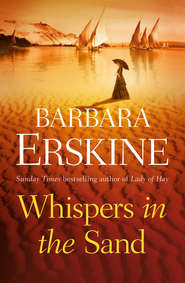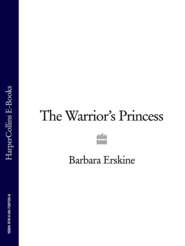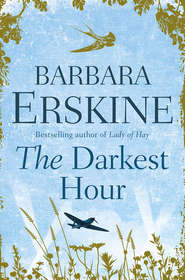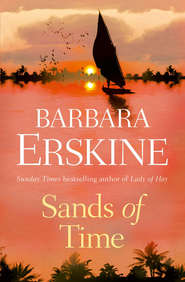По всем вопросам обращайтесь на: info@litportal.ru
(©) 2003-2024.
✖
The Ghost Tree: Gripping historical fiction from the Sunday Times Bestseller
Автор
Год написания книги
2019
Настройки чтения
Размер шрифта
Высота строк
Поля
‘You know I said I was going to go and film in the Hebrides for my TV show?’ Finlay said as he walked into the dining room on Sunday evening. ‘I’m afraid I am going to have to love you and leave you far more quickly even than I expected.’ The table had all but disappeared under an array of papers and notes and Ruth was busy with her laptop. She looked up for a moment, her expression vacant. She had been reading an account of burial at sea in the eighteenth-century Royal Navy.
Finlay peered over her shoulder. ‘This looks more like the background to a novel than family research to me.’
Ruth pushed back her chair. ‘Harriet has lent me a book which actually mentions Thomas, but it’s heavy and weird. Very esoteric. I don’t think I’m quite ready for that yet. This is far more exciting. Thomas was only just fourteen when he went into the navy. How shocking is that?’
‘It must have been a hellishly hard life.’ Finlay grimaced. ‘Right, well, I shall have to postpone our trip to Barbados. If you’re happy to go on working here and house-sit for me, I’m off to the Isle of Skye instead. I’ve been doing some phoning around and one of the people I want to interview up there is going away for a few weeks imminently so I have to catch her now if I want her in my programme. It’s a bit premature as I haven’t signed a contract yet, but I am going to hook up with someone there who will film me with her.’ His eyes were sparkling. ‘I might stay and do a bit more while I’m there, it all depends. Can I leave you here? I’m so sorry, in your hour of need.’
Ruth smiled. His anxious eager expression reminded her of a puppy that isn’t sure whether or not it’s going to get a promised reward. ‘I’ve told you I don’t mind, Fin.’ She meant it. ‘I’m just so grateful to have this place to escape to. And I now have a project on top of sorting out Number 26.’
She was, she realised, going to feel utterly lost without his noisy, enthusiastic presence. She took a deep breath. It was ridiculous to be relying on him already. His absence would give her a chance to collect herself, chivvy up the solicitors and start making plans. Stand on her own two feet. And she had her new hobby, not stamp collecting, her mouth twitched with amusement at the thought, but history, and already she had sent off for a couple more books to fill in some of the background to Thomas’s life.
When Fin said at once he meant it; he was going the next morning, flying to Inverness. As he assembled his case, his laptop and his overcoat in the hallway, he stopped and dramatically slapped his forehead with the palm of his hand. ‘There is so much I have forgotten to tell you! But we will be in touch every day by phone or email or whatever, I promise. Right. I have a cleaning lady, who comes every Thursday, and there is Lachy who comes in to mow the lawns and do the heavy work. He’s not regular. It depends on the weather and how busy he is.’ He walked back towards the kitchen and the corkboard on the wall near the door. ‘Here’s his name and phone number, so ring him if you need anything doing. Inside or out. And all the other people you might need are here – gas, electric, doctor, all that sort of thing. They are all brilliant.’ He beamed at her. ‘And they will all send me bills or wait till I see them, so don’t worry about paying anyone.’
Behind him the doorbell rang. ‘There, that’s the taxi. Goodbye, sweetheart!’ He gave her a smacking kiss on the forehead. ‘See you soon.’
‘But, Finlay—’
She was too late. He had gone, banging the front door behind him.
16 (#ulink_bbe173b9-eda5-5b43-a971-5256f755f202)
In the end, after driving away from Cramond, Timothy had found his way to the Hawes Inn at South Queensferry, had drunk too much and booked himself in for the night. He expected April to be angry when he returned home next morning; in the event, angry didn’t even begin to cover the mixture of rage and fear and indignation she hurled at him. She appeared to have been waiting in the hall for, as he put his key in the lock, the door was wrenched out of his hand and pulled open. He stared at her. She was deathly pale with huge circles under her eyes, her hair unkempt and there was a cigarette in her hand. He stared at it, uncomprehending. Since she had given up smoking two years before, she had been evangelical about not smoking in the house. Not that he ever did smoke. Much.
‘What is it? What’s wrong?’ It was obviously more than his absence overnight that had upset her.
‘Where the hell have you been?’ She caught his arm and dragged him inside.
‘I followed the Macdermott guy, as you told me to.’ He wanted to make that point clear. ‘I couldn’t come back earlier. It was all too interesting. Ruth was out there with him. I think they’re an item.’
‘So why didn’t you ring me?’
‘My battery was flat.’ That may not have been true last night but it was now. ‘What is it, April? What’s happened?’
She was still clinging to his arm. ‘Come and see.’
She almost dragged him upstairs to the door of the second bedroom; the room he thought of as his own. Abruptly she released him and gave him a push. ‘Go in. Go in and see for yourself.’ Turning, she ran down the stairs and into the kitchen where she slammed the door.
Timothy hesitated then put his hand on the door handle. Nothing frightened his sister ever.
Slowly he pressed down the handle. There was a squeak in the spring and he stopped, holding his breath, then he nudged the door open. The room looked as it normally did, sparsely furnished with the extra boxes and suitcase and the pictures where he had left them. There was an open box on the bedside table which he didn’t remember; apart from that, he could see nothing unusual.
April was sitting at the kitchen table, another cigarette in her hand. He stared at the smoke as it wreathed its way up and around the strip-light, and gave a small smile. Her weakness, her desperate breaking of her own rules gave him a huge advantage.
‘What was I supposed to be looking at?’ he said, his voice heavy with patience. ‘I can’t see anything wrong up there.’
She looked up at him and he saw the emotions cross her face one by one. Shock, surprise, disbelief and then, yes, there it was, scorn at his obvious failure. She stood up, pushing back the chair and went to the door. ‘You can’t have missed it! The cold. The ice! The sense of evil!’ She went to the bottom of the stairs and looked up. From where she was standing she could just see the landing. ‘You left the door open!’ she whispered.
‘Why not? What is supposed to have happened?’ He looked at her hard, worried now. ‘Has the heating broken? The radiator leaked? Tell me what I’m supposed to be looking at.’ He pushed past her and took the stairs two at a time.
After a moment she followed him up and peered into the room over his shoulder. ‘It’s gone,’ she said, her voice suddenly flat. ‘It’s all gone!’
He turned to confront her. ‘What’s gone?’
She was still staring round the room. ‘I couldn’t sleep because you weren’t here.’ At last came the flash of anger. ‘I didn’t know where you were. I didn’t know what had happened to you. I was looking at some boxes of stuff earlier, things you’d brought from Number 26. Silver and pictures and boxes of this and that, and in one of them’ – she gave an ostentatious shudder – ‘there was something evil.’
‘What?’ Timothy had turned away from her to survey the room again. He took a step inside.
‘No! Don’t go in!’ she cried.
‘What was it, April?’ He was scared now. ‘What was it you saw?’
‘I was on the landing and it felt cold in here.’ April shuddered. ‘I wondered if the window had blown open, so I came in—’ She bit her lip hard. ‘The room was full of ice.’ She whispered the words so softly he could barely hear them.
‘And was the window open?’ His own voice, normal, strong, sounded indecently loud.
‘No. It was cold as death. It smelt of the sea.’
‘Dear God, woman! Have you gone insane?’ In spite of himself, Timothy was rattled. He stepped backwards out of the room and pulled the door closed behind him, giving it a little push to make sure it had latched properly. ‘Well, whatever it was, it’s gone now.’
She followed him back into the kitchen and for the first time seemed to notice the smoke hanging there under the light. Her cigarette had burned to ash in the saucer on the table. ‘So,’ she said over her shoulder. Her voice was normal again. ‘What was so exciting that you couldn’t come home? Where does our celebrity chef live?’
He told her everything. Except about his night in the Hawes Inn.
She reached up to the top of a cupboard and produced a half-full pack of cigarettes which she proceeded to crunch in her fist and then throw into the flip-top bin. Timothy wisely decided not to say anything.
‘Do you know what it was that you were looking at last night, that made you feel so cold?’ he ventured cautiously.
‘You had put a box on the side table,’ she replied. ‘Cardboard. There were various things inside it including a carved wood box. Small. Exotic-looking. I opened it.’ She stopped as she sensed the nausea returning. She swallowed hard. ‘Inside it was some kind of stinking old doll.’ She took a deep breath. ‘The evil was in there. I was going to throw it out, but once I took the lid off I couldn’t breathe. I couldn’t see straight.’ She took another deep breath.
‘Do you want me to throw it out for you?’ Timothy was all big brother now. To his alarm, he found the sight of April in such a state completely overwhelming. She was the eldest, she was the one always in charge. He wasn’t sure if he was frightened or if he was pleased to see her weak and indecisive.
Her reaction to his question was far from indecisive though. ‘Yes, get rid of it. But don’t for fuck’s sake open the thing again. Burn it. Or bury it in the dumpster in the next road. Let the council deal with it. Don’t try and be clever and take it anywhere in your car.’
He felt his face colour. That was exactly what he had thought of doing. He wasn’t sure where he wanted to take it, but of one thing he was certain; he had no intention of getting rid of it, not until he had had a chance to work out what it was.
Luckily, April didn’t notice. ‘Do it now,’ she said. ‘This minute. I’ll wait in here.’
‘OK.’ He turned towards the door. ‘And I might be a while. I have to do one or two things while I’m out.’ He didn’t wait to hear if she protested. He was already halfway up the stairs, his car keys in his hand.
It was late afternoon when Ruth went into the dining room and looked at the table with her piles of books, the notebook, the pens aligned neatly beside it, and the brown envelopes full of letters and she felt again that frisson of excitement at the thought of what was in there. Finlay’s abrupt departure had distracted her, but now she had time to start again on her reading and, she realised, she was actually pleased to be alone again. This was the freedom she had craved.
First she unpacked Sally’s books. Ruth pulled the box open and stacked the books on the table with the others. There were volumes on meditation and crystals, on past lives and ghost hunting and, she suddenly noticed, a slim volume, half-hidden between two others. Psychic Self-Defence by Dion Fortune. ‘Oh my God!’ she whispered. She picked it up and stared at it. So her mother had heard of Harriet’s strange magician. Perhaps she had known, too, about Lord Erskine’s alternative career as a spirit guide. She put the book on top of the pile. These books brought her closer in some ways to her mother than anything else she had found. These had been Lucy’s special treasures.
She glanced at the bulging brown envelopes. Letters were special. They were so personal, so immediate. She had already looked at a couple of them, documenting Thomas’s first months in the navy, and now she reached for one of the unopened packets. This wasn’t letters. There were several pieces of paper inside and some small cardboard-covered notebooks. She tipped everything onto the table and shook the envelope to make sure it was empty before picking up one of the notebooks and opening it at the first page.
There was a name scrawled across the top. Catherine Anne. Ruth frowned. The name was familiar. Then she remembered. Wasn’t that the name of her mother’s grandmother? She turned over the first leaf of the small book and found she was staring at a young girl’s diary. A teenager perhaps? The year was 1905. The beautiful, careful writing began neatly and the entries were much like any new diary, detailing a walk through the January woods, a trip to town to buy new boots, a friend’s birthday party. Ruth turned the pages slowly. The entries became more sporadic and less neat. Then came one that caught her eye. It had been scrawled with such force that the pen had blotted and the writing had been underlined so heavily that the paper was torn.
I had the dream again last night. Or what Papa calls the dream. But it isn’t. I know it isn’t. He’s real!!!











